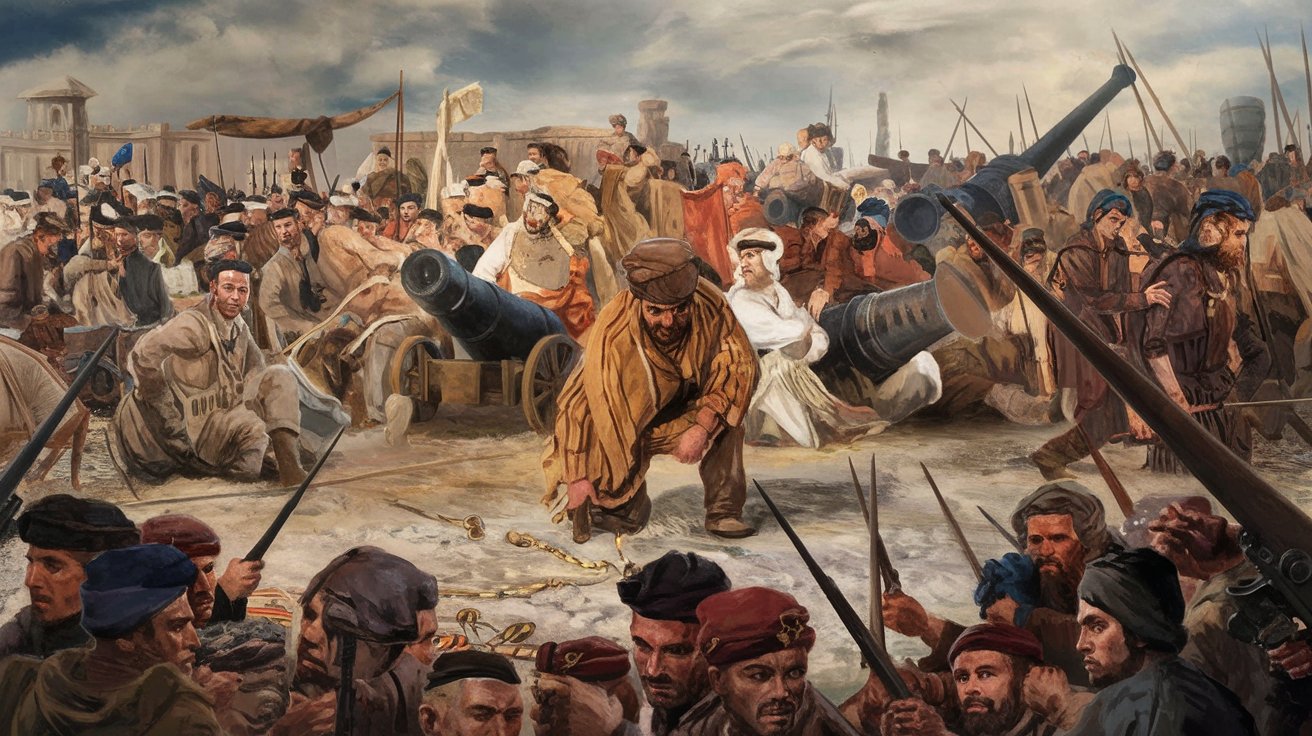
The Uukwambi Uprising stands as a significant chapter in Namibian history, filled with bravery, resistance, and the quest for freedom. This rebellion, which took place in the early 20th century, saw the Uukwambi people rise against colonial oppression. But what sparked this courageous stand? Colonial exploitation and harsh policies imposed by foreign rulers fueled the flames of resistance. The Uukwambi, known for their resilience, decided enough was enough. Their fight wasn't just about land or resources; it was about preserving their culture, dignity, and way of life. Ever wondered how a small community could challenge mighty colonial powers? Let's dive into 25 intriguing facts about the Uukwambi Uprising that will shed light on this pivotal moment in history.
Key Takeaways:
- The Uukwambi Uprising was a brave resistance against colonial oppression in Namibia, led by King Iipumbu ya Tshilongo. It inspired other movements and is commemorated as a symbol of resilience.
- The Uukwambi Uprising, sparked by taxes, forced labor, and land dispossession, showcased the Uukwambi people's bravery and determination. It led to international attention and continues to be celebrated in Namibia.
What Was the Uukwambi Uprising?
The Uukwambi Uprising was a significant event in Namibian history. It marked a period of resistance against colonial rule and oppression. Here are some fascinating facts about this pivotal moment.
- The Uukwambi Uprising took place in 1932.
- It was primarily a response to the harsh colonial policies imposed by South African authorities.
- The uprising was led by King Iipumbu ya Tshilongo, a prominent figure in Uukwambi history.
- King Iipumbu was known for his strong opposition to colonial rule and his efforts to protect his people’s land and rights.
- The Uukwambi people were part of the larger Ovambo ethnic group in northern Namibia.
Causes of the Uukwambi Uprising
Understanding the causes of the Uukwambi Uprising helps to grasp the broader context of colonial resistance in Africa.
- The imposition of taxes by the colonial government was a major trigger.
- Forced labor policies also fueled discontent among the Uukwambi people.
- The confiscation of cattle, a vital resource for the Uukwambi, added to the grievances.
- The colonial authorities' disrespect for traditional leadership structures further aggravated tensions.
- Economic exploitation and land dispossession were underlying factors.
Key Events During the Uprising
Several key events defined the course of the Uukwambi Uprising. These moments highlight the bravery and determination of the Uukwambi people.
- The uprising began with a series of attacks on colonial outposts.
- King Iipumbu and his warriors managed to capture several colonial officials.
- The colonial government responded with a military crackdown.
- Despite being outgunned, the Uukwambi fighters used guerrilla tactics to resist.
- The conflict lasted for several months, with heavy casualties on both sides.
Impact of the Uukwambi Uprising
The aftermath of the Uukwambi Uprising had lasting effects on the region and its people.
- The uprising drew international attention to the plight of the Uukwambi.
- It inspired other resistance movements in Namibia and beyond.
- The colonial government implemented stricter control measures following the uprising.
- King Iipumbu was eventually captured and exiled, but he remained a symbol of resistance.
- The Uukwambi people continued to resist colonial rule in various forms.
Legacy of the Uukwambi Uprising
The legacy of the Uukwambi Uprising lives on in Namibian history and culture. It serves as a reminder of the struggle for freedom and justice.
- The uprising is commemorated annually in Uukwambi.
- King Iipumbu is celebrated as a national hero in Namibia.
- The events of the uprising are taught in Namibian schools as part of the history curriculum.
- Monuments and memorials have been erected to honor the fighters of the uprising.
- The Uukwambi Uprising remains a symbol of resilience and resistance against oppression.
The Lasting Impact of the Uukwambi Uprising
The Uukwambi Uprising left a significant mark on Namibian history. This event showcased the resilience and determination of the Uukwambi people in their fight against colonial rule. Their bravery inspired future generations to continue the struggle for independence. The uprising also highlighted the importance of unity and collective action in the face of oppression. Though it was a challenging period, the Uukwambi people's efforts contributed to the eventual liberation of Namibia. Understanding this historical event helps us appreciate the sacrifices made for freedom and the enduring spirit of those who fought for justice. The legacy of the Uukwambi Uprising remains a powerful reminder of the strength and courage required to stand up against injustice.
Frequently Asked Questions
Was this page helpful?
Our commitment to delivering trustworthy and engaging content is at the heart of what we do. Each fact on our site is contributed by real users like you, bringing a wealth of diverse insights and information. To ensure the highest standards of accuracy and reliability, our dedicated editors meticulously review each submission. This process guarantees that the facts we share are not only fascinating but also credible. Trust in our commitment to quality and authenticity as you explore and learn with us.
